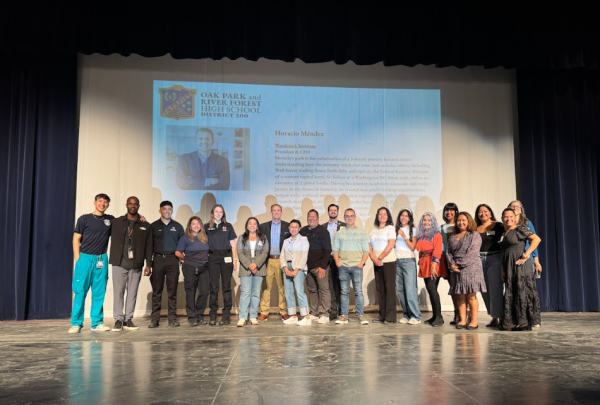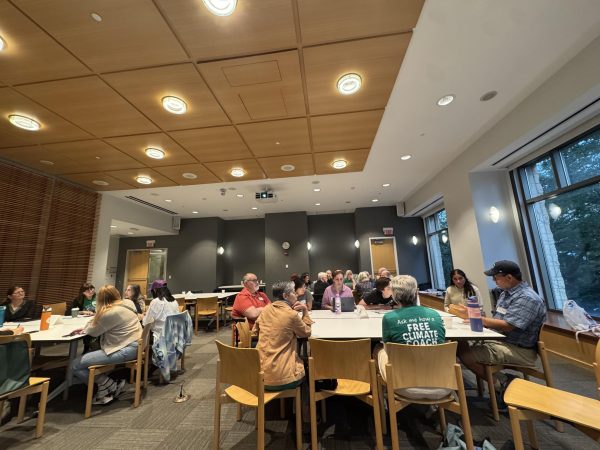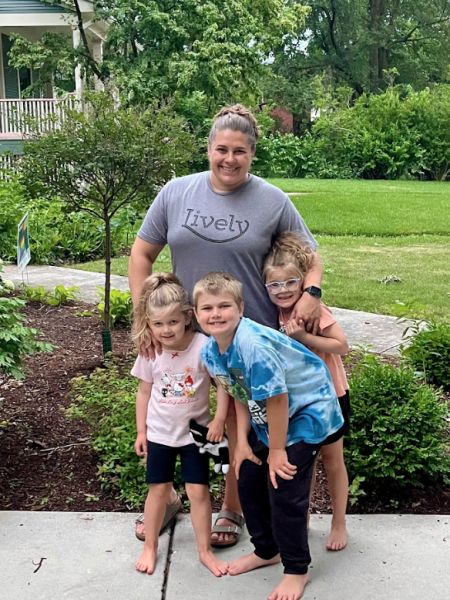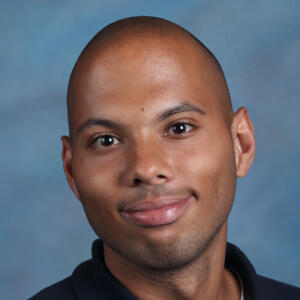OPRF to pilot AP African American History course
Teachers and administrators at Oak Park and River Forest High School expressed confidence that, despite recent controversy, the new Advanced Placement African American Studies course will provide our students with a rich and meaningful learning experience.
Beginning next school year, OPRF will pilot the course, which has been the subject of debate over whether or not the College Board watered down the curriculum due to political pressure. According to a Feb. 1 New York Times article, “The official course looks different from a previous draft: No more critical race theory, and the study of contemporary topics — like Black Lives Matter — is optional.”
The controversy began when Florida’s Department of Education rejected the course earlier this year, alleging it was “inexplicably contrary to Florida law and significantly lacks educational value,” according to The New York Times in a Jan. 19 article. The agency later explained the curriculum amounted to “woke indoctrination” because it included discussion of topics such as intersectionality, reparations and critical race theory.
The College Board then made optional some of the materials that upset conservatives, provoking backlash from some leading academics.
In response, a statement released by the College Board on Feb. 11 said, “We deeply regret not immediately denouncing the Florida Department of Education’s slander, magnified by the DeSantis administration’s subsequent comments, that African American Studies ‘lacks educational value.’”
Tyrone Williams, Ph.D, a current AP United States History teacher at OPRF, will soon also be the teacher of AP African American Studies here. Williams agreed with the College Board’s statement. “The reality is, the AP board had an opportunity to stand up and make a stronger claim very early on, and the fact is, they were silent,” said Williams. “The College Board should have just been really clear and vocal in its stance that a multicultural history is important.”
Regardless of political drama, the people at OPRF who made this happen are confident they will be able to create a valuable class.
In collaboration with several district and building administrators, Julie Lam, Ed.D, the director of student learning, applied on behalf of OPRF to pilot AP African American Studies. She pointed out that many of the criticisms of the course were leveled before the course was finalized.
“When I think about the timeline that College Board has shared…I think the work was getting finalized back in December. And, of course, it takes time to edit and to publish, and get it ready for that [official] Feb. 1 release. So, I thought it was interesting that some people came out against it, but the framework wasn’t released,” she said.
Lam added in an email, “I would also specify that AP courses have required and supplemental or optional elements that allow for both students to learn required course content and skills that can earn them college credit or placement through the exam, and for teachers to have some autonomy because they know their students best.”
Lam feels as though this presents more freedom to teachers, rather than it being proof that the College Board is leaving out essential parts of African American History.
Amy Hill, the head of the History Division, believes “Dr. Williams will have a lot of discretion over resources to use to supplement the things that are required. He knows the history really well and he knows great sources to pull in, and he will have this pretty rich set of resources from the College Board that are secondary that he can use if he wants to, but he’s not required to.”
This community is lucky to have access to this new course, as well as to a teacher who will not avoid heavier subjects, according to Hill. “We live in a community where Dr. Williams and the school will have the ability to create a really rich class that doesn’t shy away from some of the things that are maybe currently controversial,” she said.
Although OPRF has had an African American history course for many years, it is only now becoming an AP class, a move Williams supports. “We cater to a diverse audience, but for some reason we haven’t elevated the African American curriculum,” he said. “If we’re going to think about this country through a lens that’s multicultural, we have to understand that the African American population were some of the first people to be in this context.”
Williams continued to explain that “Most Americans here can only trace their ancestry back to the 1890s, and yet we have classes that cater to that, or to those populations. So, it’s important that we elevate the African American presence in a way that’s meaningful.”
African American history is essential to any United States history course, but in most cases the first mention of African Americans is during the trans-Atlantic slave trade. AP African American Studies will go beyond that, to give a more in depth history.
Hill explained that the course “really looks at African kingdoms, the important central role African societies played in what some historians refer to as the old world system, and the interconnectedness and the global reach of some of those African kingdoms that sets the foundation of achievement and developed civilizations.”
“For quite a while there’s been interest in having an honors level or an AP level course in African American history,” said Hill. “It was a no-brainer on our part that we wanted to be involved in that.”
Lam agreed. “OPRF is a place where we want to innovate. We like to explore opportunities, and being able to apply and get accepted… into the second year of the pilot is pretty significant for us,” she said.
“As a person of color, I learned very little about Chinese Americans besides the fact that they were railroad workers,” Lam added, “If I was to be back in high school, and I could take the Asian American history class, where it goes beyond that, I would be super excited.”
According to Williams, an additional factor for the addition of AP African American Studies was “when we look at the data, it tells us that the group that’s missing the most from the AP curriculum, is our African American students,” he continued. “We have to figure out how to be more thoughtful about providing opportunities for all students to participate in a college curriculum.”
It is important that students who participate in college level courses resemble the real OPRF student body, and that is a goal of implementing this new AP, in Hill’s view.
“Given the diverse population that we have, given the number of students of color who attend our school and our schools overall mission around promoting cultural competence,” said Hill, “the opportunity for all kids to earn college credits studying a subject as central as African American history is pretty critical to who we are and what we believe.”
Williams is planning on creating a curriculum that will give students a new depth of knowledge surrounding the role of African Americans beyond the United States.
“Classrooms are spaces where kids are supposed to be a little uncomfortable. We’re supposed to ask some questions that make you raise your eyebrows, and I want students to push back in respectful, meaningful ways,” said Williams. “I’m prepared for this. I’ve researched. I’ve been really thoughtful in my process.”
Lam said, “African American history is American history,” and this course will provide a complete understanding of African Americans’ role in history.









